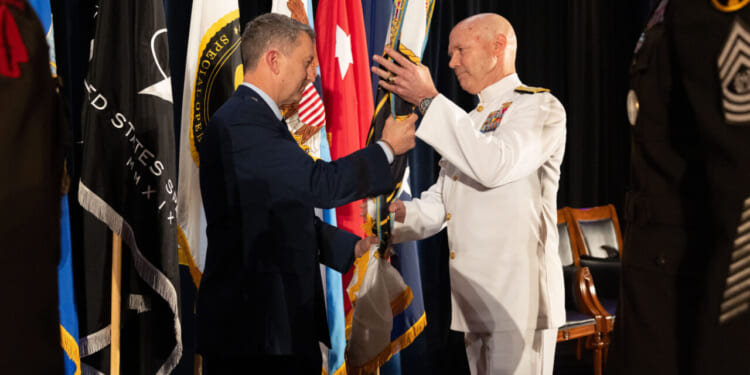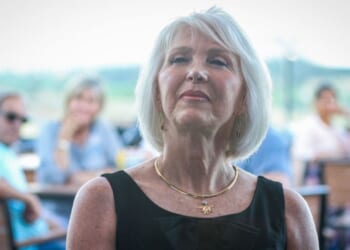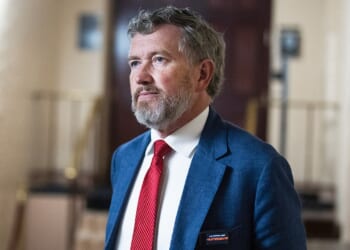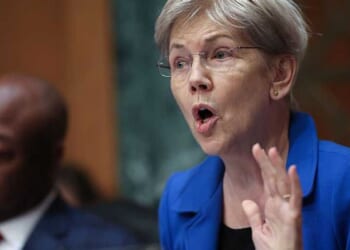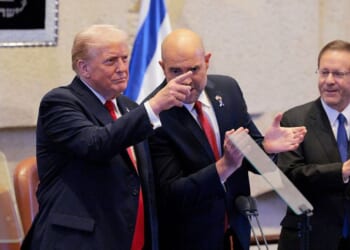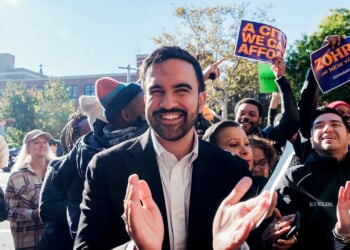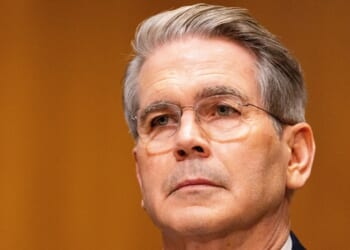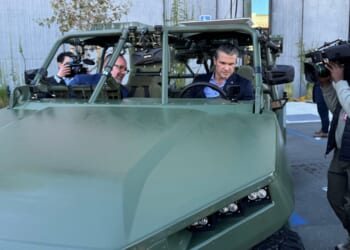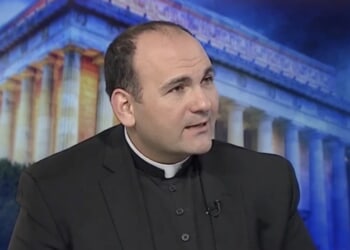The change of command came at a time when the focus is on a future near-peer conflict with China or Russia.
The special operations community has a new leader. Army General Bryan Fenton retired, and Navy Admiral Frank Bradley assumed his role as commander of the US Special Operations Command (SOCOM).
Change of Command
In a ceremony last week, Admiral Bradley, a Navy SEAL, replaced General Fenton, an Army Special Forces officer, as the head of the US special operations community.
“SOCOM is a unique organization. Forged from the OSS [Office of Strategic Services] in World War II, your job is to connect people and to bring dilemmas to those who would do us harm,” Air Force general Dan Caine, chairman of the Joint Chiefs of Staff, said during the change of command.
The change of command came at a time when the focus is on a future near-peer conflict with China or Russia.
“[Gen. Fenton] strengthened those connections … Bradley’s charge is to expand them … ensuring SOCOM remains ready to go out into the darkness on land, in the air, on the sea, or in cyberspace to do our nation’s business,” the most senior officer in the US military added.
Before assuming the mantle of SOCOM, Bradley commanded the secretive Joint Special Operations Command (JSOC) and Special Operations Command-Central. Bradley also served and later commanded the Naval Special Warfare Development Group (DEVGRU), colloquially known as SEAL Team Six.
“The strength of our organization lies in the extraordinary service members, civilians, contractors, and family members who serve within it—those who are willing to go above and beyond the call of duty to protect our Nation and its interests,” Fenton wrote in his departing letter.
“At USSOCOM, humans truly are more important than hardware, and are USSOCOM’s comparative advantage,” the retired general added.
During the two decades of fighting in the Middle East, the special operations community spearheaded US military operations. First, a handful of Army Green Berets and CIA officers defeated the Taliban and al-Qaeda forces in Afghanistan. Then, special missions units led an industrial counterterrorism campaign against al Qaida in Iraq, destroying the terrorist organization and allowing the US military to pull out from Iraq.
More recently, the special operations community has reverted to supporting the conventional military in preparation for a near-peer conflict with China or Russia.
The Elite Background of SOCOM’s Leaders
Both Fenton and Bradley commanded JSOC before getting the big job.
Although JSOC nominally falls under SOCOM, in reality, it responds only to the president and the secretary of defense. JSOC is the US military’s 911, and it contains its most elite units.
From the Army side of the house, there is the 1st Special Forces Operational Detachment-Delta, colloquially known as Delta Force. There is also the secretive Intelligence Support Activity, an intelligence-gathering outfit with a strategic purview. Fenton served and commanded that unit before rising further through the ranks and becoming the J-3 (operations) officer of JSOC and, finally, its commanding general in 2021.
From the Navy side, there is SEAL Team Six.
Finally, from the Air Force, there is the 24th Special Tactics Squadron.
JSOC is primarily tasked with hostage rescue and counterterrorism operations. However, its units are the primary choice of policymakers and military commanders in a contingency. For example, it was SEAL Team Six that killed Osama bin Laden, the leader of al-Qaeda, in 2011. And it was Delta Force that killed Abu Bakr al Baghdadi, the leader of the so-called Islamic State, in 2019.
About the Author: Stavros Atlamazoglou
Stavros Atlamazoglou is a seasoned defense journalist specializing in special operations and a Hellenic Army veteran (national service with the 575th Marine Battalion and Army HQ). He holds a BA from the Johns Hopkins University and an MA from the Johns Hopkins’ School of Advanced International Studies (SAIS). His work has been featured in Business Insider, Sandboxx, and SOFREP.
Image: DVIDS.

